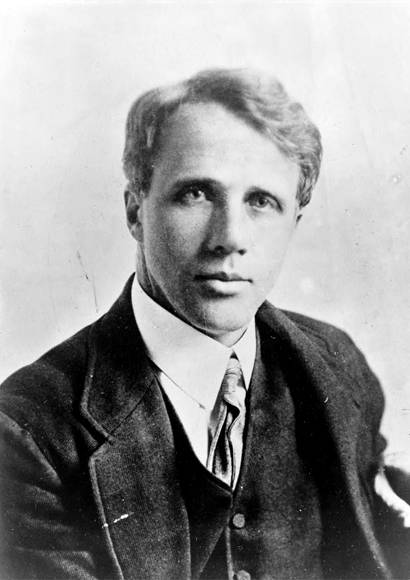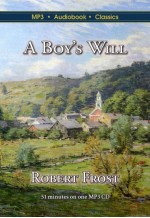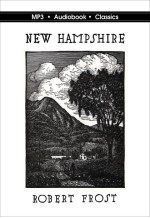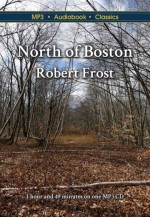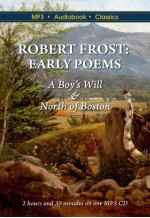Robert Frost
| Robert Lee Frost (March 26, 1874 - January 29, 1963) was the best known American poet of the twentieth century. His work combines the pastoral imagery of Wordsworth, the introspection of Emily Dickinson, and the New England temperament of Ralph Waldo Emerson with the ambiguity, irony and honesty we associate with modernism. His concept of poetry centered on what he called the "sentence-sound," the tonal sound of a sentence separate from the sound or meaning of its words. He was unique at the time in adhering to strict rules of meter, rhyme and stanzas; he was clear in his rejection of free verse, claiming “I’d just as soon play tennis with the net down.” Within the formal structures, however, he managed to utilize colloquial expressions and find a conversational tone that conveyed the character of New England and felt uniquely American. Frost was born in California and moved to Massachusetts at age 11. He graduated from Lawrence High School as valedictorian and went on to attend Dartmouth and Harvard before settling on a farm in Derry, New Hampshire. After publishing his first he sold his farm and moved to England, where he came to know Ezra Pound and Edward Thomas and published A Boy’s Will, in 1915. He won the Pulitzer prize for poetry four times, was awarded honorary degrees from Harvard, Oxford, Cambridge, and Dartmouth, and was the first to serve in the position that came to be known as the Poet Laureate. |
A Boy's Will
A Boy’s Will is the first book of poems by Frost, published in 1913 when he was in his late thirties..
$7.99
New Hampshire
New Hampshire is a collection of poems by Robert Frost first published in 1923 by Henry Holt. It con..
$9.99
North of Boston
North of Boston was Frost’s second book, a collection of seventeen poems published in 1914. It ..
$7.99
Robert Frost: Early Poems
Robert Frost: Early Poems combines the first two of Robert Frost’s published volumes. A Boy’s Will i..
$9.99

